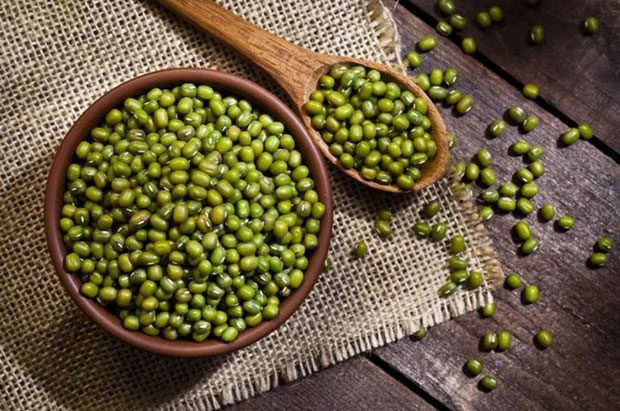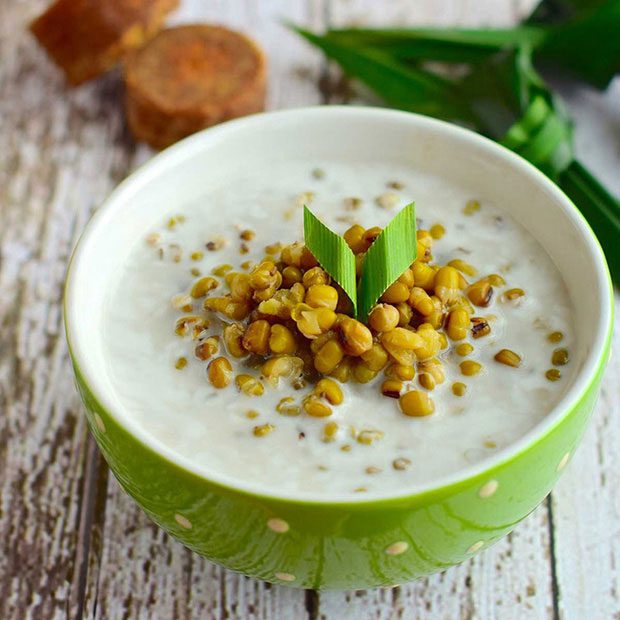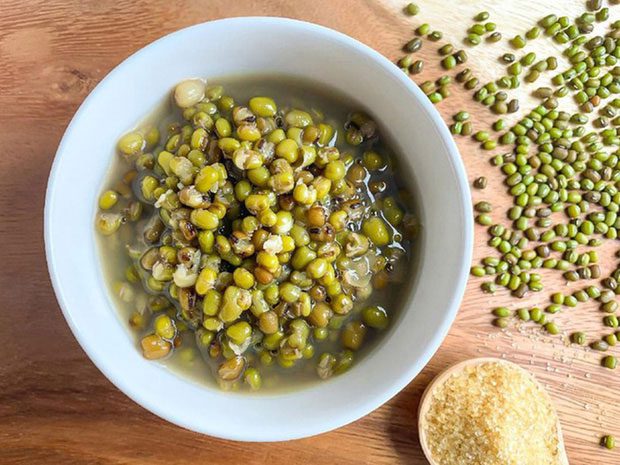If more people knew the benefits of mung beans, many would likely incorporate them into their daily diet.
Amazing Health Benefits of Mung Beans
Mung beans originated in India and later spread to China and many other Southeast Asian countries. This legume can be prepared in countless ways, either in its whole form or sprouted.
According to information from Healthline, mung beans are rich in healthy antioxidants, including phenolic acid, flavonoids, caffeic acid, and cinnamic acid.
Antioxidants help neutralize harmful molecules known as free radicals. When free radicals accumulate excessively in the body, they can cause cellular damage, leading to chronic inflammation and diseases such as heart disease, cancer, and many others.
A study published in the journal Plant Foods for Human Nutrition in 2012 found that antioxidants from mung beans can neutralize the harmful effects of free radicals associated with the development of lung and stomach cancer.
Another study published in the journal Food Science and Human Wellness in 2018 found that mung bean sprouts contain six times more antioxidants than whole mung beans.
No matter the form, the benefits of mung beans remain significant.
1. Provides essential amino acids that the body cannot produce
Mung beans are one of the best sources of plant protein. They are very rich in essential amino acids that the body cannot produce, such as phenylalanine, leucine, isoleucine, valine, lysine, and arginine.
Sprouted mung beans contain fewer calories and more free amino acids and antioxidants compared to whole mung beans.

Mung beans are one of the best sources of plant protein.
Additionally, sprouted mung beans are lower in calories and have a higher content of free amino acids and antioxidants than raw mung beans.
2. Reduces the risk of chronic diseases
Mung beans are rich in healthy antioxidants such as phenolic acid, flavonoids, caffeic acid, and cinnamic acid, which help neutralize harmful molecules (also known as free radicals).
Most free radicals are associated with the formation of cancer cells, heart disease, and chronic inflammation. The antioxidants in mung beans can neutralize free radicals, thereby reducing the risk of chronic diseases.
3. Prevents heat stroke
In many Asian countries, mung bean soup is often consumed during hot summer days. From a medical perspective, mung beans have anti-inflammatory properties that help combat heatstroke and dehydration.
Furthermore, mung beans contain antioxidants such as vitexin and isovitexin, which may protect the body from free radicals formed during heatstroke.
4. Lowers blood pressure
High blood pressure is one of the leading causes of death worldwide. It leads to a series of serious health issues such as cardiovascular diseases. However, mung beans are rich in potassium, magnesium, and fiber, nutrients that can significantly lower blood pressure.
5. Supports digestive health
Mung beans contain a type of soluble fiber called pectin, which can help speed up food movement through the intestines and promote more effective bowel activity. Additionally, they contain resistant starch, which nourishes beneficial bacteria in the gut and may reduce the risk of colon cancer.

Eating mung beans helps reduce the risk of colon cancer.
Moreover, the carbohydrates in mung beans appear to be easier to digest compared to other legumes, making them less likely to cause bloating.
6. Reduces blood sugar levels
When blood sugar levels rise, it can lead to diabetes and many other chronic diseases. Mung beans are high in fiber and protein, which help slow the release of sugar into the bloodstream. Notably, the antioxidants found in mung beans are beneficial in reducing blood sugar levels and improving insulin effectiveness.
7. Helps pregnant women stay healthier
Women should consume plenty of folate-rich foods like mung beans throughout their pregnancy, as folate is essential for the optimal growth and development of the fetus. A deficiency in folate can lead to an increased risk of birth defects.
Pregnant women should avoid eating raw mung bean sprouts as they may carry harmful bacteria.
8. Aids in weight loss
Foods high in fiber and protein are crucial for weight loss. Fortunately, mung beans are abundant in these nutrients. Numerous studies indicate that fiber and protein stimulate the release of hormones that make the body feel full and suppress hunger hormones like ghrelin.

Mung beans are rich in fiber and protein, important for weight loss.
Once appetite is controlled, calorie intake will naturally decrease, leading to weight loss.
9. Reduces bad cholesterol
High cholesterol, particularly “bad” LDL cholesterol, can increase the risk of heart disease. Articles on Healthline indicate a series of studies showing that mung beans can lower LDL cholesterol. For example, animal studies have shown that antioxidants in mung beans can reduce LDL cholesterol in the blood and prevent this type of cholesterol from interacting with free radicals.
A review of 26 studies found that consuming one serving of legumes (about 130g) daily, such as mung beans, can significantly lower LDL cholesterol levels in the blood.
Another analysis of 10 studies found that a diet high in legumes (excluding soybeans) could reduce LDL cholesterol levels by 5%.


















































